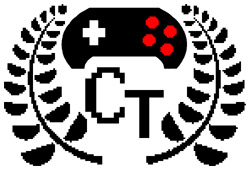Wow. What a game. I recently obtained my first PlayStation Platinum Trophy ever (are you surprised?), and it was God of War: Ragnarok that finally engaged me enough to invest the time and effort.
God of War: Ragnarok is an action-packed video game that follows the adventures of Kratos and Atreus as they navigate through the realms of Norse mythology. It picks up where the previous game left off, with Kratos and Atreus on a mission to stop the impending end of the world: Ragnarok.
Across 30-40 hours of epic story and game play, they must navigate through a dangerous (yet beautiful) world filled with mythical creatures and memorable enemies, including Thor, Odin, and Heimdall.
Along the way, Kratos, Atreus, Mimir, and an unlikely cast of allies must confront their past and deal with their inner demons, all while protecting each other and finding their place in the world.
In addition to jaw dropping graphics (I played on the PS5), the writing and acting is phenomenal.
I particularly enjoyed the performances of Adam J. Harrington as Sindri, Richard Schiff as Odin, and Ryan Hurst as Thor.
Well, on to what I like to do with every video game I enjoy: squeeze some great life lessons out of it.
Here are five life lessons we can learn from God of War: Ragnarok
1. The Importance of Family
Throughout the game, we see the bond between Kratos and Atreus grow stronger as they face various challenges together. The game reminds us that family is important and can be a source of strength during difficult times. But not just birth family, but the family we choose. Brok, Sindri, Mimir, and Freya are part of a larger circle of “family.”
2. Actions Have Consequences
One of the major themes in the game is the idea that every action has consequences. Kratos and Atreus must face the consequences of their own actions and those of the gods they encounter along their journey, both past choices as well as consideration for what will come from decisions they make along the way. Every decision we make has a ripple effect, and it’s essential to be mindful of the impact of our behavior.
3. Forgiveness and Redemption are Powerful
Kratos grapples with his dark past and Atreus learns to forgive his father for his mistakes. The game demonstrates that forgiveness can be a powerful force that helps people move forward.
Both Kratos and Atreus learn that forgiveness and redemption is possible, even in the face of past mistakes. It’s a reminder that no matter how dark our past, we can always choose to make amends and start fresh.
4. The Power of Perseverance
Kratos and Atreus face numerous challenges and obstacles throughout the game, but they never give up. The game shows us the importance of perseverance and determination, even in the face of adversity.
In particular, Ragnarok wrestles with the idea of “fate” and “destiny.” Do we make our own choices? And even if we do, does that determine the outcome or are we locked into an unavoidable pathway?
5. The Value of Humility and Self Control
Although Kratos is a powerful warrior, he learns to be humble and shows a willingness to learn and grow throughout the game. The game reminds us that being humble and open to learning can be valuable traits in life.
Kratos is also dealing with the battle that parents experience as their children become young adults, making their own choices and choosing a path that does not always mirror their own.
Choosing a New Path
The game serves as a reminder that even in the most perilous of times, we can find hope and build a brighter future for ourselves and those around us. And while actions have consequences, we can choose to make a difference in the lives of those around us.
God of War Ragnarok is more than just a video game – it is a testament to the importance of family, forgiveness, perseverance, humility, and the consequences of our actions.



